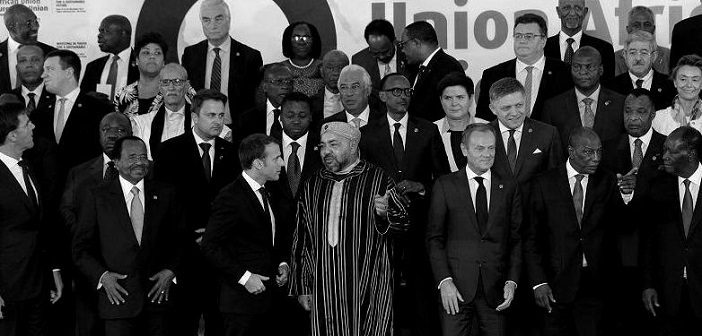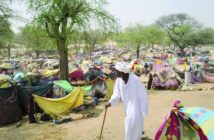Most regional blocs are identified by their economic interests rather than political orientation. This is applicable to all regional –if not- international organizations.
The African Union AU (the former African Unity Organization AUO), may be unique in this instance, as it is mostly binding its members together in view of Unity, as adopted and perceived by its postcolonial member states. Indeed, many politico-historical factors have contributed to making the unity within the context of African identity of the continent an ultimate goal that should be fulfilled.
Later on, the Founding Fathers of the African “unity” sought to make it an ideological guidance by which the African states policies would conduct their public political discourse. To some extent this can be justified as the common grounds of geographical and cultural factors that in the past had formed the existing states of the continent.
African unity as such had to be translated in terms of political bodies to execute these political ambitions in order to reflect its image in the world at large as strong united sovereign states.
* * *
The prominent British historian Paul Kenny has urged in his book The Parliament of Man, the past, present and future of the United Nations that international organisations established by the victor nations inherited many of the features of that earlier experiment in global cooperation, the League of Nations. Such historical analytic argument can safely be appropriated to the African Union developing, which not only just inherited the former AUO, but also the continent’s irresolvable problems. In the 60s, most of African emerging states had not developed towards a stable political institutionalization of the state apparatus, preventing them from playing a regional role beyond their nation-state borders. Taking this into account, any emerging power whether states or organizations, are virtually bound by the existing balance of international power, in other words: the world order, which classified the continent with less influence in the realm of the international political scene.
In 2002 the AU has come into existence at the Durban Summit in South Africa. Many of the former AUO principles been have enshrined in its constitutive act, and the unity of the continent stated as first priority. In addition to that, the public development and economic goals as might be expected. Historically, the organization was established at the dawn of what was called decolonization, when most of the African states were under the mandate of western colonized powers. Obviously, the member states of the AU have grown since that time from thirty two states to fifty four states. Like many other regional organizations in the Third World, the AU’s performance has remained limited due to the political structure of its member states – much dysfunctional state-building and manyof them polarized in different camps or in blocs, in particular in the era of the cold war. To what extent have the African countries handled and executed the stated goals? The answer needs no verification since the continent is ravaged by civil wars and interstate conflicts, which have the adverse effect of the aim. Having such a complicated image, no single regional organisation can work properly to control the entire continent’s debacles. Any political entity has to be supported by its member states.
The AU’s structural hierarchical formation is including so many political, bureaucratic, legal and technical organs that the many economical and technical hurdles are hindering the process of their performance.
The poorest nations of today’s world are in sub-Saharan Africa, indeed they’re the impecunious people of African states. No African developmental initiative other than the New Partnership for Africa’s Development (NEWPAD) is making African development to eradicate poverty through a new mechanism. This has paved the way for more effective and sustainable development.
The main challenges the AU is facing is to implement its resolutions. The reasonis always logistic matters, especially relating to the peacekeeping mission currently deployed in different parts of the continent such as Somalia, Congo and Sudan. African participation in peacekeeping internationally. Many missions of the AU were formed with military mandate working in other parts of the continent. However such a role has never been experienced in the past, so no matter how effectively they work, there will be cooperation hurdles.
* * *
In the recent decade, the security and antiterrorism activities have been increased, as a result the foreign interference in the continent has been complicated. While the AU with its modest capacities has limited options to secure its member states from radical and extremist groups whose activity work within many states, the need for cooperation at international level is required. Not only the continent’s vast resources and strategic locations are subjected by the non-states group but, the failed states would be used as platforms to launch the potential destabilizing chaos through the member states of the AU.




